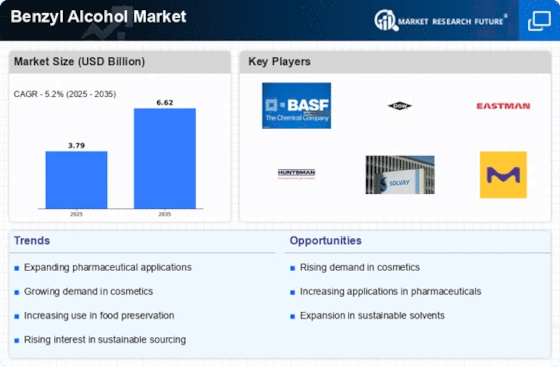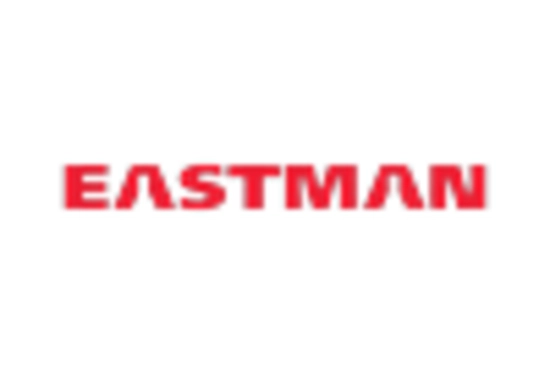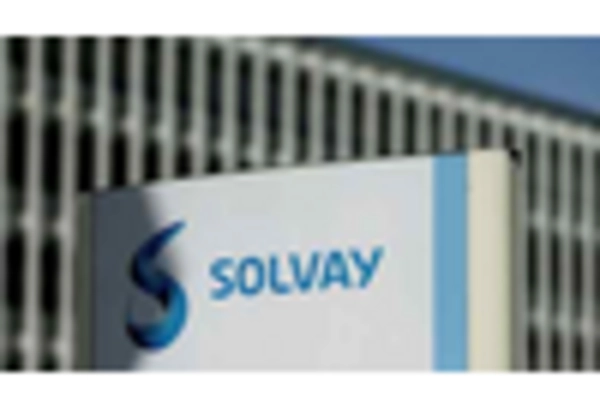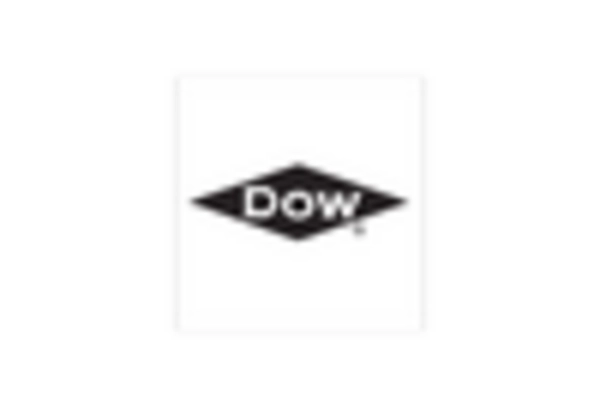Market Share
Benzyl Alcohol Market Share Analysis
Market share positioning strategies are pivotal in the Benzyl Alcohol Market, where companies strive to gain a competitive edge in a variety of industries including pharmaceuticals, personal care, and industrial applications. One of the primary strategies employed is differentiation, where companies focus on offering unique grades, purities, or formulations of benzyl alcohol tailored to specific customer needs. This could involve providing pharmaceutical-grade benzyl alcohol for drug formulations, cosmetic-grade benzyl alcohol for skincare products, or industrial-grade benzyl alcohol for various manufacturing processes. By emphasizing these distinct qualities, companies can attract customers seeking specialized solutions for their specific applications.
Pricing strategies also play a significant role in market share positioning within the benzyl alcohol industry. Some companies adopt penetration pricing strategies, offering their products at competitive prices to quickly gain market share and penetrate new segments. This approach can be effective in attracting price-sensitive customers and establishing a foothold in competitive markets. Conversely, premium pricing strategies target customers who are willing to pay more for higher quality or purity levels of benzyl alcohol. By positioning their products as premium offerings, companies can differentiate themselves and appeal to customers seeking top-tier chemical solutions.
Moreover, distribution channels are critical for market share positioning in the benzyl alcohol market. Companies may focus on expanding their distribution networks to reach a wider audience and increase accessibility to their products. This could involve partnerships with chemical distributors, wholesalers, or online platforms to enhance the availability and visibility of their benzyl alcohol. By ensuring widespread availability through various channels, companies can effectively compete with rivals and capture market share across different geographic regions and industries.
Marketing and branding efforts also play a crucial role in shaping market share positioning strategies. Companies invest in advertising campaigns, trade shows, and digital marketing initiatives to build brand awareness and attract customers. Establishing a strong brand identity can differentiate companies from competitors and foster customer loyalty. Emphasizing factors such as product quality, reliability, and versatility in marketing endeavors can resonate with consumers and drive market share growth.
Innovation emerges as another key driver of market share positioning in the benzyl alcohol industry. Companies that invest in research and development to develop new applications, formulations, or production processes can gain a competitive advantage. This could involve exploring eco-friendly production methods, developing benzyl alcohol derivatives for specialized applications, or introducing innovative packaging solutions. By staying ahead of industry trends and offering novel solutions, companies can attract discerning customers and solidify their position in the market.
Furthermore, strategic partnerships and collaborations can contribute significantly to market share positioning strategies in the benzyl alcohol market. By partnering with pharmaceutical companies, personal care manufacturers, or industrial users, companies can leverage synergies to their advantage. Collaborations with research institutions or regulatory bodies can also enhance credibility and trust in benzyl alcohol products. Through strategic alliances, companies can tap into new markets, gain access to complementary technologies or expertise, and strengthen their competitive position in the benzyl alcohol industry.


















Leave a Comment